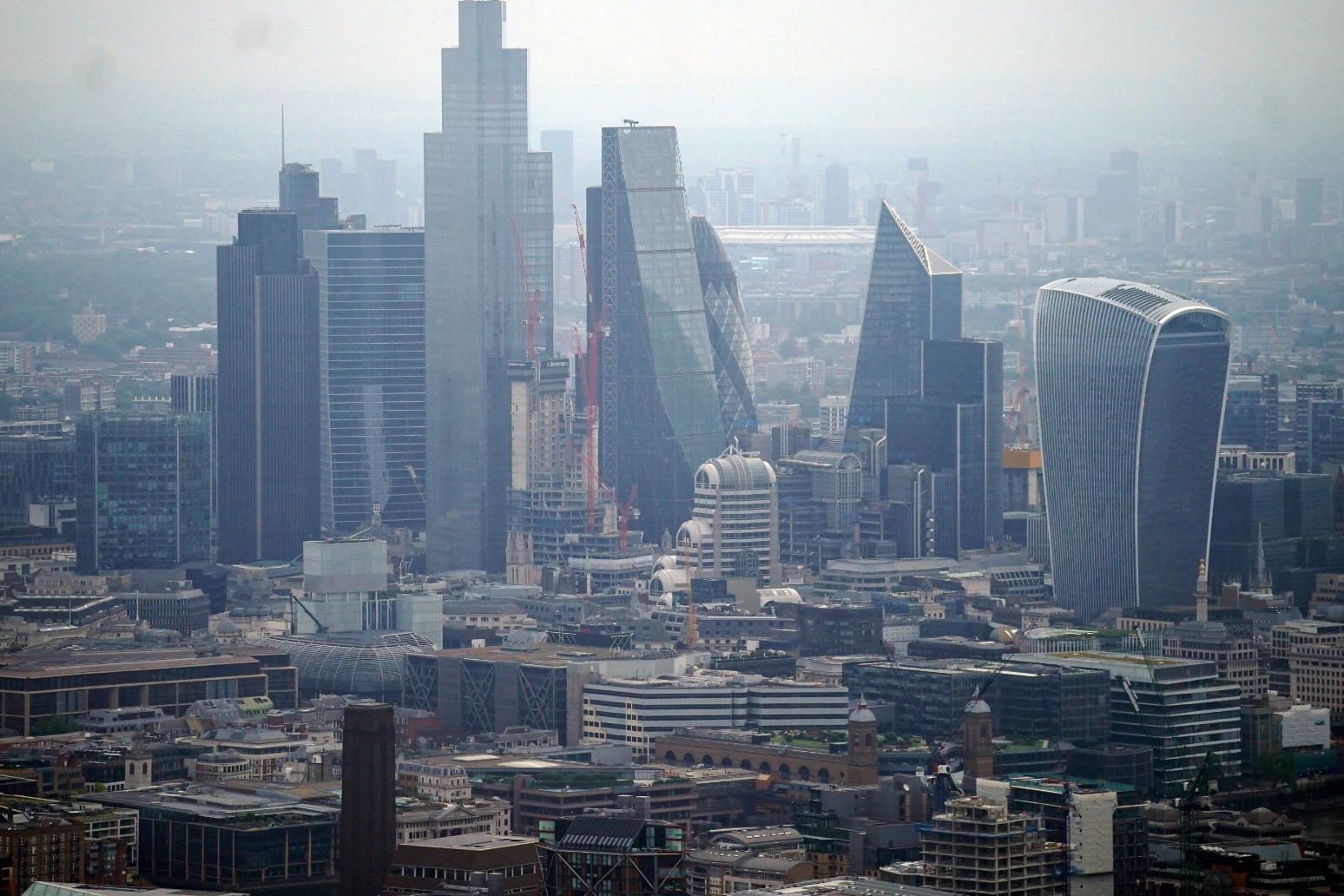
The Government’s mixed messages on climate action risks stalling the financial sector’s net zero progress, MPs warned.
In a 70-page report released on Wednesday, the Environmental Audit Committee (EAC) outlined findings and recommendations after holding an inquiry into the UK’s net zero transition and financial sector.
The committee warned that progress made at Cop26 in Glasgow in 2021, including commitments to prioritise investment in low carbon industries and into protecting nature, could be undone.
Global banks provided financing for approximately £586 billion towards fossil fuels in 2021 alone while investment in fossil fuels continues to outpace that of renewables significantly, the report noted.
The EAC said the Government’s “stop start” approach of maintaining its ambitions while delaying policy initiatives could send mixed messages to the financial sector, which could slow the net zero transition.
Witnesses told the committee that the same can be said of fossil fuels seemingly being prioritised in the name of energy security since Russia’s invasion of Ukraine.
It comes after Prime Minister Rishi Sunak announced in September that he would delay the ban on selling new diesel and petrol cars from 2030 to 2035 and that 20% of households will be exempt from a new gas boiler ban, arguing that he does not want to burden ordinary people with the costs of going net zero.
The Government has said it is confident that the net zero by 2050 target will be met, which means balancing the emissions put out with those removed from the atmosphere either through natural or technological means.
To keep the Government on track, the EAC urged ministers to publish quarterly reports that highlight its move towards greater energy independence while staying on track to meet net zero.
It also called for an independent body to be tasked with tracking net zero and nature-related financial flows as well as investment in high-carbon projects.
Elsewhere, the committee said the Government’s position to shift the onus of responsibility to the private sector and rely on market mechanisms does not go far enough in terms of tackling the nature and climate crise.
It said it is also concerned that relying on investor behaviour will not move the dial fast enough.
During the inquiry, the EAC heard that the UK is ahead of other countries in terms of transition planning while the Global Green Finance Index placed London as the leading green finance centre for the fourth year running in 2023.
But the report said the Government needs to take forward a number of initiatives announced at Cop26 to maintain these positions.
The EAC said it is concerned that the “comply or explain” approach to mandatory transition plans by companies defeats the point of the policy, as companies could meet the requirements by simply disclosing that it does not have a plan.
The committee urged ministers to move towards making transition plans mandatory for companies while effectively monitoring and evaluating their effectiveness.
It also recommended the Government phase in compulsory Taskforce on Nature related Financial Disclosures (TNFD) over the next three to five years.
Philip Dunne, EAC chairman, said: “Globally, banks continue to pump trillions of dollars into fossil fuels, and simply put, we are not turning the dial fast enough to tackle the climate and nature crises.
“Enormous strides have been made in the last few years to champion a low carbon economy, but we’re at risk of this good work stalling through complacency.
“The UK should be proud of its long-held position in front of the peloton, with other governments following its lead.
“London is the number one financial centre for commitments to environmental improvements both directly in finance and across the wider economy.
“But this alone is not enough.
“At Cop26, the Government made ambitious commitments to make even greater progress in embedding climate and nature into financial decision making.
“The Government should implement swiftly its initiatives on mandatory transition plans, a UK green taxonomy, and carbon leakage mitigation measures.
“Any delay is likely to send mixed messages to the financial sector that the UK is wavering on its ambitions, as set out at Cop26, to become the first net zero-aligned financial centre.”
The Environmental Audit Committee wanted the Government to publish an assessment of how Mr Sunak’s recent policy changes would affect the progress towards net zero but was told it was not appropriate to do so.
A Government spokesperson said: “This report fails to recognise the huge progress we’ve made in funding renewables, having attracted £200 billion in low carbon investment since 2010, with a further £100 billion expected by 2030 – powering up Britain and supporting up to 480,000 jobs.
“At this week’s Global Investment Summit, we also attracted nearly £30 billion worth of commitments to invest in a range of projects including renewables production, grid capacity and heat pump manufacturing.
“We were the first major country to publish a green finance strategy in 2019, which we are using to further strengthen our leadership in green finance and provide the financial backing for our energy security, net zero and environmental targets.”
Published: by Radio NewsHub













